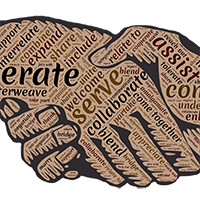The Discursive Struggles of the Client–Worker Relationship in the Social Services

Accepted: 22 July 2020
All claims expressed in this article are solely those of the authors and do not necessarily represent those of their affiliated organizations, or those of the publisher, the editors and the reviewers. Any product that may be evaluated in this article or claim that may be made by its manufacturer is not guaranteed or endorsed by the publisher.
Authors
This study examines how disability service workers identify the discourses of the client-worker relationships. We studied the clientworker relationship from the perspective of the relational dialectics theory with a focus on relational contradictions and the meanings created within discursive struggles. We analyzed the interview data from 22 social workers using contrapuntal analysis. According to the social workers’ perceptions, two discursive struggles exist in client-worker relationships: i) the struggle of integration, consisting of the contradiction of the ideal and the real and the contradiction of closeness and reservedness and ii) the struggle of certainty, consisting of the contradiction of predictability and novelty and the contradiction of openness and closedness. These struggles and contradictions arranges on the societal and relational frames to fully depict the nature of social work. Overall, our analysis shows that the client-worker relationship is both bound to the norms of a professional and a close interpersonal relationship, making its study particularly interesting.
How to Cite
PAGEPress has chosen to apply the Creative Commons Attribution NonCommercial 4.0 International License (CC BY-NC 4.0) to all manuscripts to be published.

 https://doi.org/10.4081/qrmh.2020.8688
https://doi.org/10.4081/qrmh.2020.8688



